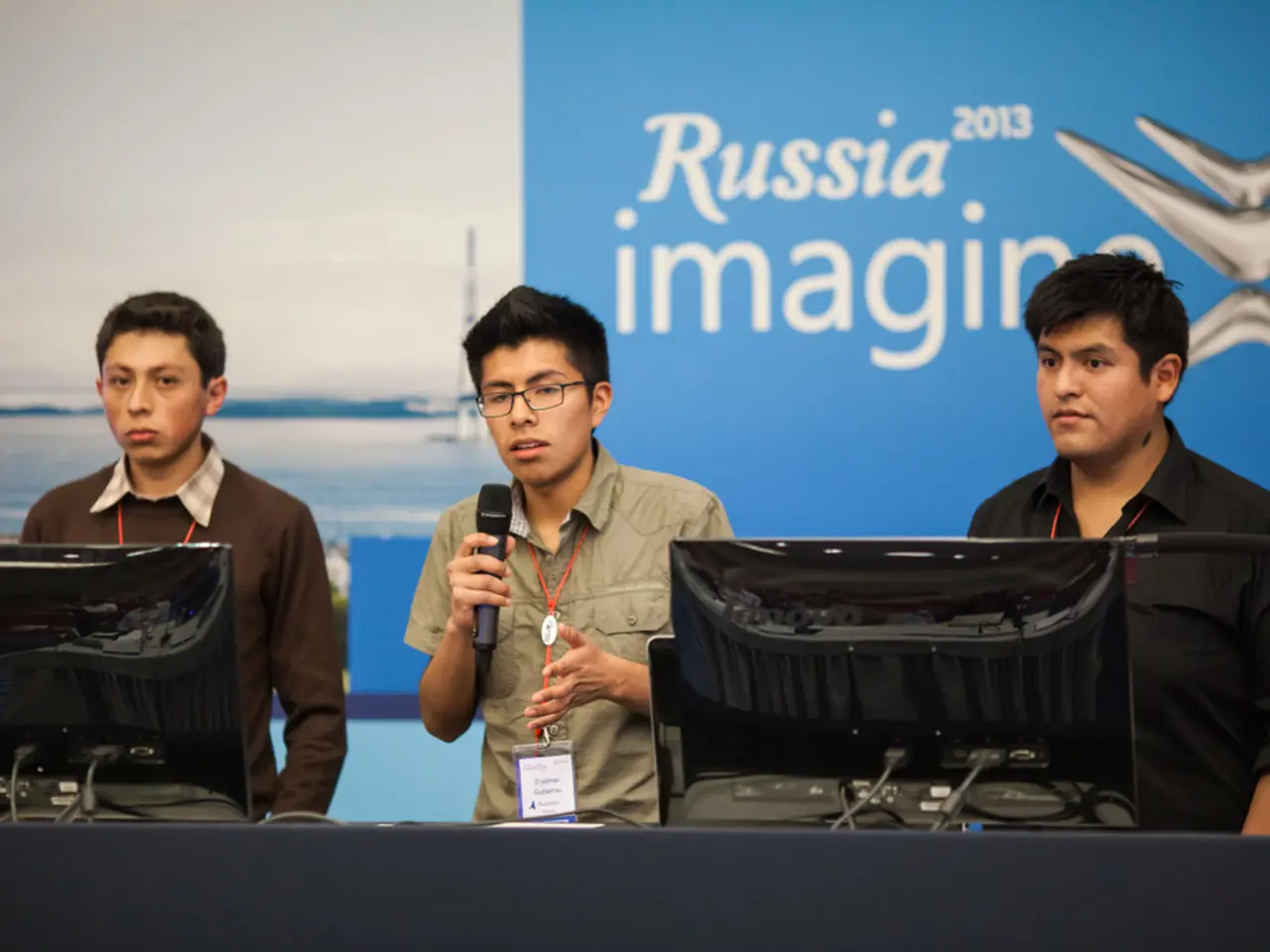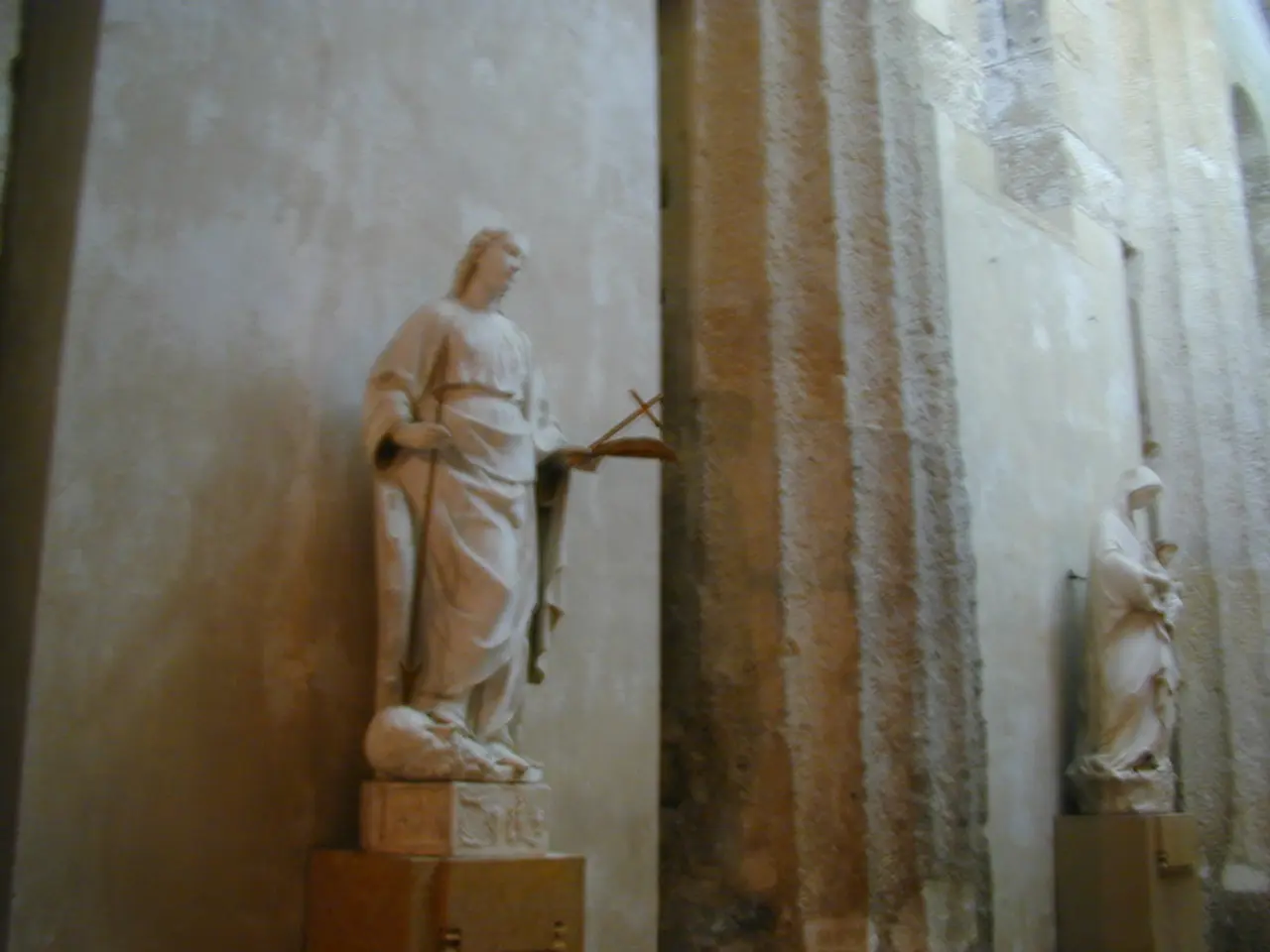Judge appointments seek renewed process, as advocated by Woidke
The election proceedings for three judges at Germany's Federal Constitutional Court have hit a roadblock, primarily due to a dispute over a candidate nominated by the Social Democratic Party (SPD), Frauke Brosius-Gersdorf. The conservative CDU/CSU bloc has raised plagiarism allegations related to her 1997 doctoral dissertation, along with objections to her progressive views on abortion and support for compulsory COVID-19 vaccinations [1][3][4].
This standoff has led to the Bundestag cancelling the planned vote for all three judges [1][3]. The CDU/CSU's insistence on delaying Brosius-Gersdorf's appointment has sparked anger among the SPD, the Greens, and other parties who view this as a potential threat to the court’s credibility. The CDU/CSU is relying on opposition support to reach the required two-thirds majority in the Bundestag, making consensus difficult [1][3].
In response to the deadlock and stalled proceedings, Dietmar Woidke, Minister-President of Brandenburg and a member of the SPD, has proposed resolving the impasse by initiating a renewed discussion in the Bundestag to find a consensus candidate acceptable to all parties. Woidke emphasizes the importance of restoring the court’s authority and avoiding further political polarization around the nomination process [4].
Amidst the dispute, the SPD has proposed constitutional law expert Ann-Katrin Kaufhold as an alternative candidate to Brosius-Gersdorf [1]. The Union, on the other hand, has nominated federal labor court judge Günther Spinner as an alternative candidate [2]. Woidke proposes involving the Left Party and Greens in the dispute over the appointment of the judges, while excluding the AfD [3].
Brandenburg's Minister President Dietmar Woidke suggests a fresh start to the dispute over the appointment of the three posts at the Federal Constitutional Court, aiming to secure a two-thirds majority for the appointment of judges [3]. Woidke believes the previous approach does not reflect well on the federal coalition [5]. He suggests that all candidates withdraw and the procedure be completely reset by the factions in the German Bundestag [6].
Since 2021, Brosius-Gersdorf has held the chair for Public Law, with a focus on Constitutional and Social Law, at the University of Potsdam [7]. The CSU parliamentary group leader Alexander Hoffmann had previously suggested drafting a new judicial package, which met with resistance from the SPD and Greens [8].
The election of the three judges for the Federal Constitutional Court was unexpectedly removed from the Bundestag's agenda on July 11 due to resistance within the Union faction against Brosius-Gersdorf [1][9]. The removal was a surprising turn of events, as the SPD and Union had previously proposed their respective candidates for the vacant positions at the Federal Constitutional Court [10].
In summary, the election of the three judges has been stalled due to plagiarism allegations and ideological disagreements relating to Brosius-Gersdorf, prompting calls—including from Dietmar Woidke—to resolve the conflict through renewed cross-party dialogue and consensus-building [1][3][4].
- The dispute over Frauke Brosius-Gersdorf's nomination for the Federal Constitutional Court has escalated into a political issue, involving policy-and-legislation as the Bundestag and parties grapple with ideological disagreements and plagiarism allegations.
- The standoff around the appointment of the three judges at the Federal Constitutional Court has become a topic of general-news interest, with Dietmar Woidke proposing a renewed cross-party dialogue to find a consensus candidate and restore the court’s authority, indicating the need for political compromise in the process.







